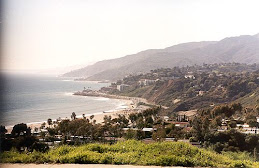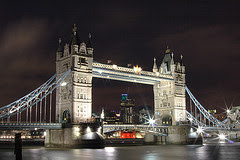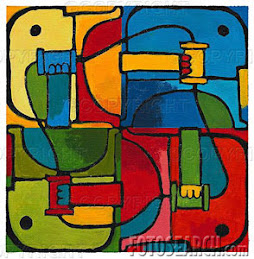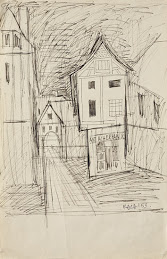Smt. Indira Gandhi not only brought violence but also corruption. Twenty-five years after her death, we are still trying to cope with both. The Naxalites are a direct end-product of the Emergency. If it is not wrong to use violence to put down your political enemies-which is what the Emergency was all about-why is it wrong to use violence against those who have stolen your lands and your livelihood and are now busy stealing your homes in the name of progress? "Had she lived on, she would have been 92 years old this year," wrote an old colleague of Indira Gandhi on the occasion of the 25th anniversary of her violent death. He was wrong. Had she not been killed by her bodyguards, she would have been killed by someone else. She was destined for violent death, like Charles I of Britain and Zulfiqar Ali Bhutto of Pakistan. url: http://www.organiser.org/dynamic/modules.php?name=Content&pa=showpage&pid=318&page=6 |
Saturday, November 21, 2009
** Unpardonable mistakes
The unpardonable mistakes of Indira Gandhi
By Dr Jay Dubashi
Wednesday, November 4, 2009
** Sikhs remember 1984
Sikhs take stock of 1984
Sudha Ramachandran
Asia Times
BANGALORE - The 25th anniversaries of two events, both defining moments in India's recent history, have been observed over the past few days. One is the assassination of prime minister Indira Gandhi by her bodyguards on October 31, 1984. The other is the violence targeting Sikhs that began within hours of that assassination and engulfed Delhi and other cities for at least three days.
The two events are closely connected. The assassination led to the massacres. What sets them apart is the way the Indian state responded to them.
It was swift in delivering justice in the case of Indira's assassination. Satwant Singh, the lone surviving assassin (Beant Singh, the other assassin, was shot dead soon after the assassination while he was allegedly trying to escape) and Kehar Singh, a conspirator, were tried and hanged within four years.
But those who orchestrated the killing of around 2,733 Sikhs in Delhi - the Citizens Justice Committee submitted 3,870 names to an enquiry commission - still roam free. A quarter of a century later, justice is yet to be done.
The year 1984 is one that few Indians will forget. It was the year when a gas leak in a factory owned by Union Carbide in Bhopal killed over 2,000 people and maimed several others for life. It was also the year India's secular foundations were shaken like never before.
In June 1984, the Indian army stormed the Sikhs' holiest shrine, the Golden Temple in Amritsar, to flush out Sikh militants holed in there. They had turned it into a fortress and were waging war against the Indian state. "Operation Bluestar" was a military success in that it eliminated hundreds of militants including the dreaded Jarnail Singh Bhindranwale. But at a very heavy cost. It was a political disaster. The Akal Takht was reduced to rubble and hundreds of Sikh pilgrims were killed in the course of the operations. Bluestar wounded the Sikh psyche, deeply alienating the community from the Indian state. It fueled the Sikh militancy and kept it alive for another decade at least.
Revenge came swiftly. Barely five months later, Indira was assassinated. Her assassins were Sikhs.
The response to her killing came even more swiftly. Within hours of her death, stray incidents of violence targeting Sikhs began trickling in from various parts of Delhi.
The violence peaked on November 1. Mobs carrying iron rods, knives and kerosene went on a rampage, killing Sikhs, looting and setting alight their homes, business establishments and places of worship. Sikh cab drivers were lynched or burned alive in their cabs. Those fleeing Delhi were dragged out of trains and buses and slaughtered.
The orgy of violence unleashed on Sikhs following Indira's assassination is often referred to as a riot as though it was a spontaneous outpouring of anger. It was not. It was an organized massacre, a pogrom.
There is a mountain of evidence to prove that politicians belonging to the ruling Congress Party incited and directed the pogrom in collusion with the police. Even as mobs led by Congressmen burned, looted, raped and murdered the government did nothing to quell the violence.
Police made some arrests during the violence; ironically most of the arrests were of Sikhs defending their families against the killers.
Days after the pogrom, Rajiv Gandhi, Indira's son and successor, indirectly justified the violence. "When a mighty tree falls, it is only natural that the earth around it does shake a little," he said.
As shocking as the state's involvement in the violence was its failure to ensure justice thereafter.
Ten commissions and committees have probed the pogrom so far with little impact on bringing the guilty to book. One commission of inquiry headed by a sitting Supreme Court judge, Ranganath Mishra, found no lapses on the part of the government and assigned no culpability to the ruling establishment. For his whitewashing of the Congress' role, Mishra was rewarded. He went on to head the National Human Rights Commission and also became a member of India's upper house of parliament.
During and after the massacres, police refused to register complaints. Of those which were registered, only a few made it to the courts. “Of the ones that reached the courts, the majority resulted in acquittal of the accused as the police never made an attempt to find evidence against them. As a result, the conviction rate has been extremely poor," says Harvinder Singh Phoolka, a senior advocate in the Supreme Court who has been fighting for justice on behalf of the victims.
"Out of 2,733 officially admitted murders, only nine cases led to convictions. Just over 20 accused have been convicted in 25 years - a conviction rate of less than 1%,” he says.
The massacre of the Sikhs took place in front of thousands of witnesses. The identity of those who carried out the violence was evident from the start. A report brought out by civil rights groups in November 1984 carried an annexure listing the names of people alleged to have carried out the violence. It included 198 local Congress activists and others, 15 Congress leaders and 143 police officials.
Of the top Congress politicians who were known to have orchestrated the violence, Sikh militants assassinated two within months of the massacres.
Others like Jagdish Tytler and H K L Bhagat went on to have successful political careers, even holding cabinet posts.
In 2005, the Nanavati Commission said it found “credible evidence” against Tytler, Bhagat and another Congress leader Sajjan Kumar saying they "very probably" had a hand in organizing the attacks. While Bhagat died in 2005, the Central Bureau of Investigation gave Tytler a clean chit earlier this year and the court is yet to decide whether or not to initiate a fresh probe.
Sikh alienation from the Indian state and their anger with the Congress has subsided significantly over the years. The movement for a separate Sikh state is dead. And Punjab has voted the Congress to power twice since the 1984 riots.
Some have suggested that the Congress' efforts to reach out to the Sikhs has helped in building bridges. In 1998 Congress president Sonia Gandhi expressed her "anguish" over the 1984 riots. "I feel your pain," she said. That she is a victim of terrorist violence herself and the daughter-in-law of Indira and widow of Rajiv Gandhi, who was prime minister when the riots took place helped to heal wounds to some extent. That was taken further by Prime Minister Manmohan Singh, India's first Sikh prime minister who apologized to the Sikhs in parliament.
That and the fact that the Congress made a Sikh a premier, say Congress leaders, has won the party the hearts of Sikhs.
But not all Sikhs have been appeased by the conciliatory words. They want justice.
While admitting that the Congress' conciliatory gestures have "been like a balm on the community", Phoolka says, "The Congress wants us to forget it; view it as an aberration. When they made Manmohan Singh prime minister, they stepped up this rhetoric; saying, 'forget it now, at least we have apologized and now made your man the prime minister. Our answer has been that the apology came 21 years late and under the Indian legal system an apology is not a substitute for punishment for murder. We want justice." More at > Asia Times
Related story Below:
Besieged Sikhs @ http://ultracurrents.blogspot.com/2009/04/congress-and-besieged-sikhs.html
Sudha Ramachandran
Asia Times
BANGALORE - The 25th anniversaries of two events, both defining moments in India's recent history, have been observed over the past few days. One is the assassination of prime minister Indira Gandhi by her bodyguards on October 31, 1984. The other is the violence targeting Sikhs that began within hours of that assassination and engulfed Delhi and other cities for at least three days.
The two events are closely connected. The assassination led to the massacres. What sets them apart is the way the Indian state responded to them.
It was swift in delivering justice in the case of Indira's assassination. Satwant Singh, the lone surviving assassin (Beant Singh, the other assassin, was shot dead soon after the assassination while he was allegedly trying to escape) and Kehar Singh, a conspirator, were tried and hanged within four years.
But those who orchestrated the killing of around 2,733 Sikhs in Delhi - the Citizens Justice Committee submitted 3,870 names to an enquiry commission - still roam free. A quarter of a century later, justice is yet to be done.
The year 1984 is one that few Indians will forget. It was the year when a gas leak in a factory owned by Union Carbide in Bhopal killed over 2,000 people and maimed several others for life. It was also the year India's secular foundations were shaken like never before.
In June 1984, the Indian army stormed the Sikhs' holiest shrine, the Golden Temple in Amritsar, to flush out Sikh militants holed in there. They had turned it into a fortress and were waging war against the Indian state. "Operation Bluestar" was a military success in that it eliminated hundreds of militants including the dreaded Jarnail Singh Bhindranwale. But at a very heavy cost. It was a political disaster. The Akal Takht was reduced to rubble and hundreds of Sikh pilgrims were killed in the course of the operations. Bluestar wounded the Sikh psyche, deeply alienating the community from the Indian state. It fueled the Sikh militancy and kept it alive for another decade at least.
Revenge came swiftly. Barely five months later, Indira was assassinated. Her assassins were Sikhs.
The response to her killing came even more swiftly. Within hours of her death, stray incidents of violence targeting Sikhs began trickling in from various parts of Delhi.
The violence peaked on November 1. Mobs carrying iron rods, knives and kerosene went on a rampage, killing Sikhs, looting and setting alight their homes, business establishments and places of worship. Sikh cab drivers were lynched or burned alive in their cabs. Those fleeing Delhi were dragged out of trains and buses and slaughtered.
The orgy of violence unleashed on Sikhs following Indira's assassination is often referred to as a riot as though it was a spontaneous outpouring of anger. It was not. It was an organized massacre, a pogrom.
There is a mountain of evidence to prove that politicians belonging to the ruling Congress Party incited and directed the pogrom in collusion with the police. Even as mobs led by Congressmen burned, looted, raped and murdered the government did nothing to quell the violence.
Police made some arrests during the violence; ironically most of the arrests were of Sikhs defending their families against the killers.
Days after the pogrom, Rajiv Gandhi, Indira's son and successor, indirectly justified the violence. "When a mighty tree falls, it is only natural that the earth around it does shake a little," he said.
As shocking as the state's involvement in the violence was its failure to ensure justice thereafter.
Ten commissions and committees have probed the pogrom so far with little impact on bringing the guilty to book. One commission of inquiry headed by a sitting Supreme Court judge, Ranganath Mishra, found no lapses on the part of the government and assigned no culpability to the ruling establishment. For his whitewashing of the Congress' role, Mishra was rewarded. He went on to head the National Human Rights Commission and also became a member of India's upper house of parliament.
During and after the massacres, police refused to register complaints. Of those which were registered, only a few made it to the courts. “Of the ones that reached the courts, the majority resulted in acquittal of the accused as the police never made an attempt to find evidence against them. As a result, the conviction rate has been extremely poor," says Harvinder Singh Phoolka, a senior advocate in the Supreme Court who has been fighting for justice on behalf of the victims.
"Out of 2,733 officially admitted murders, only nine cases led to convictions. Just over 20 accused have been convicted in 25 years - a conviction rate of less than 1%,” he says.
The massacre of the Sikhs took place in front of thousands of witnesses. The identity of those who carried out the violence was evident from the start. A report brought out by civil rights groups in November 1984 carried an annexure listing the names of people alleged to have carried out the violence. It included 198 local Congress activists and others, 15 Congress leaders and 143 police officials.
Of the top Congress politicians who were known to have orchestrated the violence, Sikh militants assassinated two within months of the massacres.
Others like Jagdish Tytler and H K L Bhagat went on to have successful political careers, even holding cabinet posts.
In 2005, the Nanavati Commission said it found “credible evidence” against Tytler, Bhagat and another Congress leader Sajjan Kumar saying they "very probably" had a hand in organizing the attacks. While Bhagat died in 2005, the Central Bureau of Investigation gave Tytler a clean chit earlier this year and the court is yet to decide whether or not to initiate a fresh probe.
Sikh alienation from the Indian state and their anger with the Congress has subsided significantly over the years. The movement for a separate Sikh state is dead. And Punjab has voted the Congress to power twice since the 1984 riots.
Some have suggested that the Congress' efforts to reach out to the Sikhs has helped in building bridges. In 1998 Congress president Sonia Gandhi expressed her "anguish" over the 1984 riots. "I feel your pain," she said. That she is a victim of terrorist violence herself and the daughter-in-law of Indira and widow of Rajiv Gandhi, who was prime minister when the riots took place helped to heal wounds to some extent. That was taken further by Prime Minister Manmohan Singh, India's first Sikh prime minister who apologized to the Sikhs in parliament.
That and the fact that the Congress made a Sikh a premier, say Congress leaders, has won the party the hearts of Sikhs.
But not all Sikhs have been appeased by the conciliatory words. They want justice.
While admitting that the Congress' conciliatory gestures have "been like a balm on the community", Phoolka says, "The Congress wants us to forget it; view it as an aberration. When they made Manmohan Singh prime minister, they stepped up this rhetoric; saying, 'forget it now, at least we have apologized and now made your man the prime minister. Our answer has been that the apology came 21 years late and under the Indian legal system an apology is not a substitute for punishment for murder. We want justice." More at > Asia Times
Related story Below:
Besieged Sikhs @ http://ultracurrents.blogspot.com/2009/04/congress-and-besieged-sikhs.html
** Love Jihad in India?
India lost in 'love jihad'
Sudha Ramachandran
Oct.28, 2009
AsiaTimes
BANGALORE - As part of an organized campaign, young Muslim men are deliberately luring women from different faiths into marriage so they will convert to Islam, say radical Indian Hindu and Christian groups in south India.
The alleged plot has been dubbed "love jihad".
It first surfaced in September, when two Muslim men from Pathanamthitta town in the southwestern state of Kerala reportedly enticed two women - a Hindu and a Christian - into marriage and forced them to convert to Islam.
The women first claimed to have became Muslims voluntarily, but after being allowed back to their parents' houses said they had been abducted and coerced to convert. The men were reportedly members of Campus Front, a student wing of radical Muslim group the Popular Front of India (PFI).
The Pathanamthitta incident was followed by an avalanche of media reports on "love jihad". Some described it as a movement, others claimed that forced conversions through marriage were actually being run by an organization called Love Jihad, or Romeo Jihad.
Hindu and Christian groups have weighed in with their own "facts" on the "love jihad".
The Sri Ram Sene, a fundamentalist Hindu group, now claims thousands of girls were forcibly converted to Islam in the past few years after marrying Muslim men. It says that after conversion the women were "trained in anti-national activities". India's main opposition party, the Bharatiya Janata Party, has said "love jihadis" have receiving foreign aid - from the Middle East - for the campaign.
Senior Christian leaders are now campaigning against the alleged threat.
"Around 4,000 girls have been subjected to religious conversion since 2005 after they fell in love," Father Johny Kochuparambil, secretary of Kerala Catholic Bishops Council's Commission for Social Harmony and Vigilance, wrote in an article in the church council's newsletter.
The article lists 2,868 girls who fell into the "love jihad" net between 2006 to 2009. Kochuparambil has not clarified where the statistics came from, citing only "highly reliable sources".
The phenomenon has spread to Kerala's neighboring state, Karnataka. This month, the father of a woman who converted to Islam to marry a Muslim filed a habeas corpus petition in a Karnataka court, alleging his daughter was a victim of "love jihad". The woman told the court that her conversion was voluntary.
The court, however, said it has "serious suspicions" regarding the statement of the petitioner's daughter and that the case "has ramifications for national security". "It has raised questions of unlawful trafficking of girls and women in the state. So it has to be investigated by the police," the court said.
On the orders of the court, police in Kerala and Karnataka launched an investigation into whether an organization called Love Jihad or Romeo Jihad actually exists. They concluded that it doesn't.
Kerala's director general of police said no such organization had been identified in the state, but there were reasons to suspect there had been "concentrated attempts" by Muslim boys to persuade non-Muslim girls to convert to Islam after they fell in love.
The PFI, meanwhile, has denied it is waging a "love jihad".
"Religious conversion is not a crime; conversion takes place to Hinduism and Christianity also ... One cannot paint all love affairs as cases of forced conversions meant for extremist activity," said PFI spokesman Naseerudheen Elamaram.
In India, religious conversion is not a crime - article 25 of the constitution recognizes the right to freely profess, practice and propagate religion. However, the issue of conversion is extremely sensitive. In recent years, Hindu groups have opposed, sometimes violently, the conversion of Hindus to Islam and Christianity.
For centuries, Hindus converted to Jainism, Buddhism, Sikhism, Islam and Christianity, some out of conviction, others to escape the tyranny of the Hindu caste system or to benefit from professing the religion of the ruling class. However, Hindu groups maintain that it was through the use of the sword that Islam spread in India. They also accuse Christians of using economic incentives to attract Hindus to the faith.
Ironically, "love jihad" is now the bringing the sworn enemies together. Christian and Hindu groups that had been at each other's throat over religious conversions have now vowed to join forces to combat the alleged campaign.
"Both Hindu and Christian girls are falling prey to this. So we are cooperating with the VHP [Vishwa Hindu Parishad, a fundamentalist Hindu group] on this," K S Samson, from the Kochi-based Christian Association for Social Action (CASA), told the Times of India.
When CASA got to know of a Hindu schoolgirl who had become a victim of "love jihad", it "immediately referred the case to the VHP", he said.
The "love jihad" phenomenon - which may just be linked to a few religious-minded Romeos - could have been comical had it not deepened domestic hostility towards India's Muslim minority. There are fears that the use of the word "jihad", often interpreted as meaning holy war, may give extremist Hindu and Christian groups an excuse to justify attacks on Muslims.
"Certain fundamentalist groups that have been carrying out vigilante attacks against inter-community couples for several years have now started using the 'love jihad' theory to justify their attacks," a police official told The Hindu newspaper. He did not name the groups, but was probably referring to the Sri Ram Sene and the Bajrang Dal, which target women and religious minorities.
Sri Ram Sene is now preparing for a nationwide campaign on the issue. Its leader, Pramod Mutalik, has said 150 party activists have been deployed in public places to keep an eye on "suspicious activities". When a "love jihad" activity is identified, "it will be stopped then and there", he said.
Meanwhile, the Kerala Catholic Bishops Council has issued "love jihad" guidelines, calling on parents and schools to monitor children's activities and discourage them from using mobile phones or spend long hours on the Internet. "Bringing up children the spiritual way is the best means to fight the love jihad," said the Christian group. http://atimes.com/atimes/South_Asia/KJ28Df05.html
Sudha Ramachandran
Oct.28, 2009
AsiaTimes
BANGALORE - As part of an organized campaign, young Muslim men are deliberately luring women from different faiths into marriage so they will convert to Islam, say radical Indian Hindu and Christian groups in south India.
The alleged plot has been dubbed "love jihad".
It first surfaced in September, when two Muslim men from Pathanamthitta town in the southwestern state of Kerala reportedly enticed two women - a Hindu and a Christian - into marriage and forced them to convert to Islam.
The women first claimed to have became Muslims voluntarily, but after being allowed back to their parents' houses said they had been abducted and coerced to convert. The men were reportedly members of Campus Front, a student wing of radical Muslim group the Popular Front of India (PFI).
The Pathanamthitta incident was followed by an avalanche of media reports on "love jihad". Some described it as a movement, others claimed that forced conversions through marriage were actually being run by an organization called Love Jihad, or Romeo Jihad.
Hindu and Christian groups have weighed in with their own "facts" on the "love jihad".
The Sri Ram Sene, a fundamentalist Hindu group, now claims thousands of girls were forcibly converted to Islam in the past few years after marrying Muslim men. It says that after conversion the women were "trained in anti-national activities". India's main opposition party, the Bharatiya Janata Party, has said "love jihadis" have receiving foreign aid - from the Middle East - for the campaign.
Senior Christian leaders are now campaigning against the alleged threat.
"Around 4,000 girls have been subjected to religious conversion since 2005 after they fell in love," Father Johny Kochuparambil, secretary of Kerala Catholic Bishops Council's Commission for Social Harmony and Vigilance, wrote in an article in the church council's newsletter.
The article lists 2,868 girls who fell into the "love jihad" net between 2006 to 2009. Kochuparambil has not clarified where the statistics came from, citing only "highly reliable sources".
The phenomenon has spread to Kerala's neighboring state, Karnataka. This month, the father of a woman who converted to Islam to marry a Muslim filed a habeas corpus petition in a Karnataka court, alleging his daughter was a victim of "love jihad". The woman told the court that her conversion was voluntary.
The court, however, said it has "serious suspicions" regarding the statement of the petitioner's daughter and that the case "has ramifications for national security". "It has raised questions of unlawful trafficking of girls and women in the state. So it has to be investigated by the police," the court said.
On the orders of the court, police in Kerala and Karnataka launched an investigation into whether an organization called Love Jihad or Romeo Jihad actually exists. They concluded that it doesn't.
Kerala's director general of police said no such organization had been identified in the state, but there were reasons to suspect there had been "concentrated attempts" by Muslim boys to persuade non-Muslim girls to convert to Islam after they fell in love.
The PFI, meanwhile, has denied it is waging a "love jihad".
"Religious conversion is not a crime; conversion takes place to Hinduism and Christianity also ... One cannot paint all love affairs as cases of forced conversions meant for extremist activity," said PFI spokesman Naseerudheen Elamaram.
In India, religious conversion is not a crime - article 25 of the constitution recognizes the right to freely profess, practice and propagate religion. However, the issue of conversion is extremely sensitive. In recent years, Hindu groups have opposed, sometimes violently, the conversion of Hindus to Islam and Christianity.
For centuries, Hindus converted to Jainism, Buddhism, Sikhism, Islam and Christianity, some out of conviction, others to escape the tyranny of the Hindu caste system or to benefit from professing the religion of the ruling class. However, Hindu groups maintain that it was through the use of the sword that Islam spread in India. They also accuse Christians of using economic incentives to attract Hindus to the faith.
Ironically, "love jihad" is now the bringing the sworn enemies together. Christian and Hindu groups that had been at each other's throat over religious conversions have now vowed to join forces to combat the alleged campaign.
"Both Hindu and Christian girls are falling prey to this. So we are cooperating with the VHP [Vishwa Hindu Parishad, a fundamentalist Hindu group] on this," K S Samson, from the Kochi-based Christian Association for Social Action (CASA), told the Times of India.
When CASA got to know of a Hindu schoolgirl who had become a victim of "love jihad", it "immediately referred the case to the VHP", he said.
The "love jihad" phenomenon - which may just be linked to a few religious-minded Romeos - could have been comical had it not deepened domestic hostility towards India's Muslim minority. There are fears that the use of the word "jihad", often interpreted as meaning holy war, may give extremist Hindu and Christian groups an excuse to justify attacks on Muslims.
"Certain fundamentalist groups that have been carrying out vigilante attacks against inter-community couples for several years have now started using the 'love jihad' theory to justify their attacks," a police official told The Hindu newspaper. He did not name the groups, but was probably referring to the Sri Ram Sene and the Bajrang Dal, which target women and religious minorities.
Sri Ram Sene is now preparing for a nationwide campaign on the issue. Its leader, Pramod Mutalik, has said 150 party activists have been deployed in public places to keep an eye on "suspicious activities". When a "love jihad" activity is identified, "it will be stopped then and there", he said.
Meanwhile, the Kerala Catholic Bishops Council has issued "love jihad" guidelines, calling on parents and schools to monitor children's activities and discourage them from using mobile phones or spend long hours on the Internet. "Bringing up children the spiritual way is the best means to fight the love jihad," said the Christian group. http://atimes.com/atimes/South_Asia/KJ28Df05.html
Subscribe to:
Posts (Atom)












